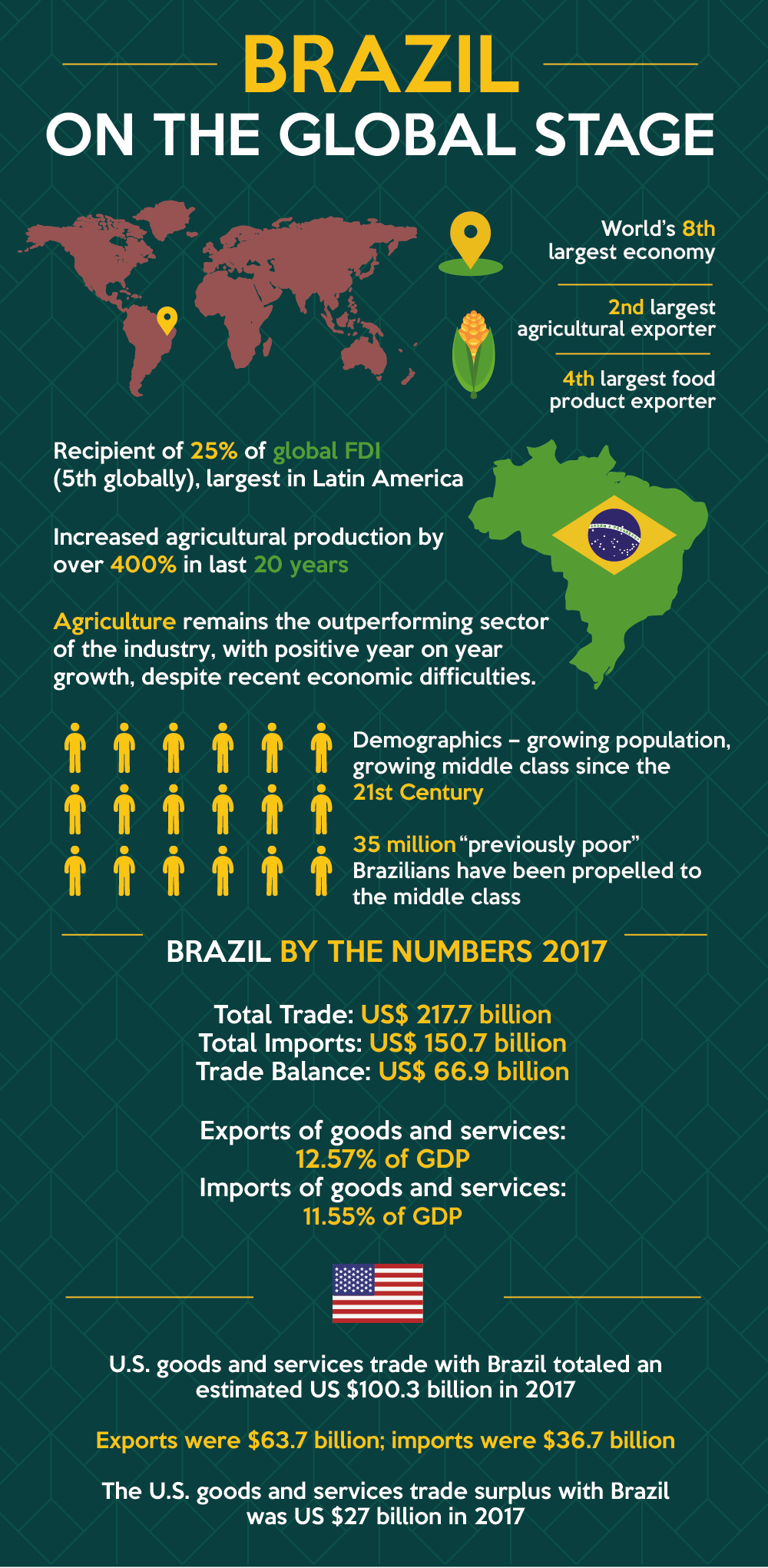The United States and Brazil have been uneasy allies during the best of times. Spying scandals, political unrest, and other factors have made smooth relations between the countries difficult. However, after the recent election of Jair Bolsonaro, who shares similar views as US president Donald Trump, the relationship between these two countries is beginning to look much brighter. In the first nine months of 2018, Brazil’s trade with the US already increased to US$ 52.58 billion. Brazil’s economy expanded 0.8 percent in the third quarter as investment rose at its fastest pace since 2009. A recent jump in business and consumer confidence suggests growth is further accelerating with Jair Bolsonaro having taken office on January 1st.
After years of left-wing governments, Brazilian voters have now chosen a right-wing candidate whose speech and policy proposals resonate with Trump’s. The American president has proven to develop fruitful business relationships with other right-wing leaders. “We might be on the verge of a golden era of relations,” said Fernando Cutz, a former senior White House official who worked on Latin America policy in the Obama and Trump administrations. “Trump and Bolsonaro will really hit it off. Their personalities are almost identical, and their policy views are very similar.”
According to Trump’s National Security Advisor John Bolton, the recent elections of like-minded leaders in key countries, including Ivan Duque in Colombia and Jair Bolsonaro in Brazil, are positive signs for the future of the region and demonstrate a growing regional commitment to the free market principles and open, transparent and accountable governance.

Regardless of political dynamics, the Trump administration has proven to value international relationships whenever there is a good opportunity for business, and Brazil’s recent growth aligned with its new government is certain to attract US interest. Brazil boasts the world’s eighth-largest GDP, is the largest economy in Latin America, and one of the largest agricultural exporting nations in the world. Expected to become the world’s largest foods exporter by 2020, the agriculture and agribusiness sectors have been the biggest contributor to the economic recovery of Brazil, now representing 23.5% of GDP, the highest level in 17 years. The most recent harvest report in Brazil (16/17) is projected to be 238 million metric tons, more than double the harvest just ten years ago.
Paulo Guedes, Bolsonaro’s pick for finance minister, studied in the US and is known as a fan of free markets. This will certainly increase Bolsonaro’s efforts to attract foreign investment which will, in turn, have great benefits for companies such as Primal. Currently operating the largest commercial neem plantation in the world, we are proof of the positive impact that foreign projects can have on the Brazilian economy. With 1,600 hectares (c. 3,953 acres) and a growing workforce, we are not only creating a new chapter for sustainable global agriculture in Northeastern Brazil, but also bringing change, education, and resources to the local communities.
A more open relationship with the United States and the rest of the world will contribute towards more resources, financial interest and the growth of agricultural projects, such as ours, in Brazil. Primal is a firm believer that Brazil will play a key role in feeding the world in the future. We are helping to engineer this, along with being revolutionaries in sustainable business that protects the environment while generating safe returns. As we continue to write the book on sustainable commercial agriculture, the future looks bright.
Learn more about how you can become part of the future of agriculture by clicking here.